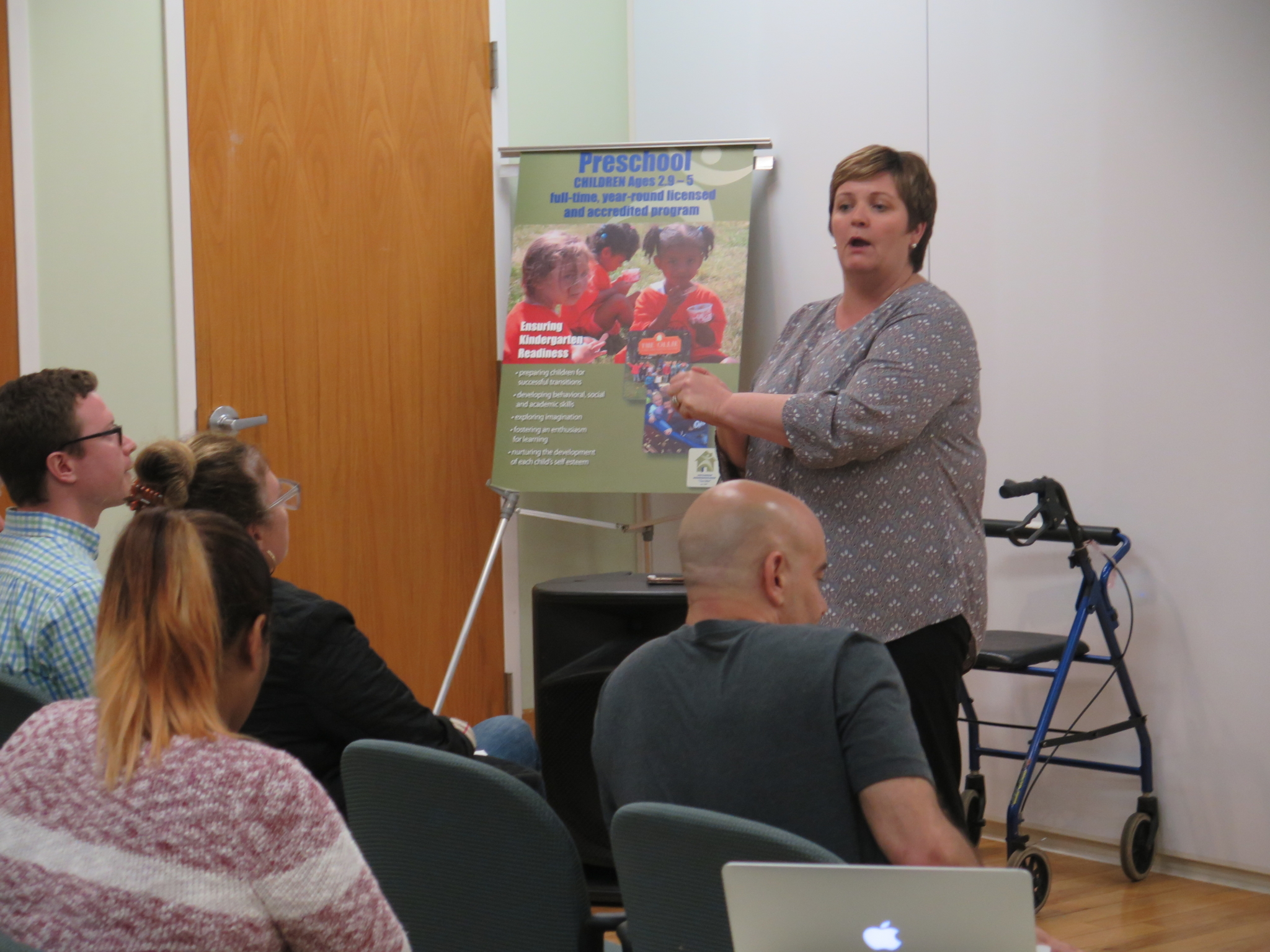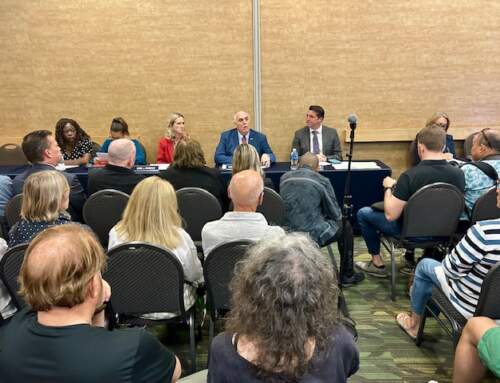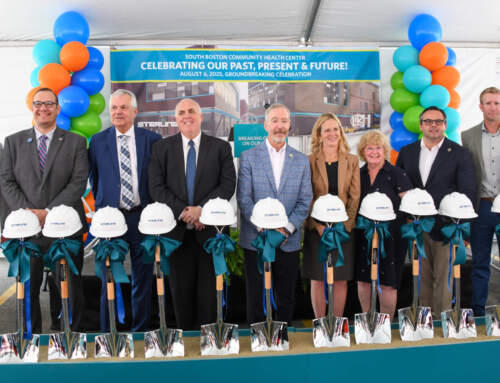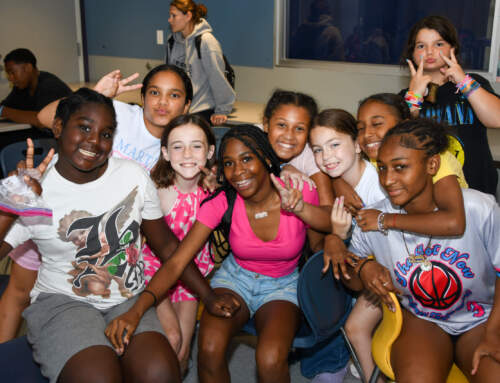by Rick Winterson
An important issue has been simmering in South Boston for a long time. It was emphatically brought into the open earlier this year of 2017 at a meeting of the South Boston Association of Non-Profits (SBANP). The members of SBANP spoke loudly and clearly that “Trauma” – especially childhood trauma – should become an essential focus of the SBANP mission here in South Boston.
You may well ask how much of an effect trauma has on South Boston’s young people. From a non-medical, lay person’s standpoint, an accurate, meaningful answer is “a lot!” Poverty, violence, lack of good parenting, and neighborhood bullying can all be traumatic to children. And no one in South Boston has to be told that we have substance abuse problems. Alcohol, hard drugs, marijuana, prescription medicines – all can create trauma among the children who witness this abuse. And trauma doesn’t even have to be caused by something “wrong” – a serious auto accident, a natural disaster, or a major illness in a family can also cause traumatic effects among kids.
But a first, small-but-effective step has been taken:
At 10 a.m. last Wednesday morning, May 31, something over a hundred people gathered at the South Boston Neighborhood House – the “Ollie” at 136 H Street. They came from all walks of local life – professionals, non-profit employees, concerned residents, parents, the media – to attend a presentation dealing with trauma among children. Kathy Lafferty, Executive Director of the Neighborhood House, introduced the meeting’s featured presentation.
This presentation took the form of an hour-long talk, an informally presented “keynote” lecture with visual aids, followed by a question and answer period. Steve Gross, M.S.W., presented the keynote. He is the Founder (as well as the Chief Playmaker) of a 501(c)(3) non-profit organization he calls the “Life Is Good Kids Foundation” (LIGKF). Steve’s background in dealing with early childhood trauma includes dealing with the aftermaths of horrendous earthquakes in Japan and Haiti. More locally, in the New York/New England areas, he and LIGKF have had significant roles in overcoming devastating trauma after Hurricane Katrina and the mass shooting in Newtown.
To describe his efforts in lay persons’ terms, think of the LIGKF’s strong and constant emphasis on the power of optimism. This is based on the fact (not an assumption) that proper help, carefully offered at the right time, can overcome the effects of childhood trauma, even if it’s quite severe. Operating phrases in the LIGKF system include “playful engagement”, “meaningful relationships”, and “heal, learn, and grow”.
A follow-up LIGKF meeting that will expand upon last Wednesday’s “keynote” presentation has been scheduled for 10 a.m. tomorrow, Friday, June 9. It’s also to take place at the Neighborhood House. Organization, role identification, and leadership assignments will be the topics. And just for your information, the Life Is Good Kids Foundation has a South Boston address – their local offices are on Melcher Street.
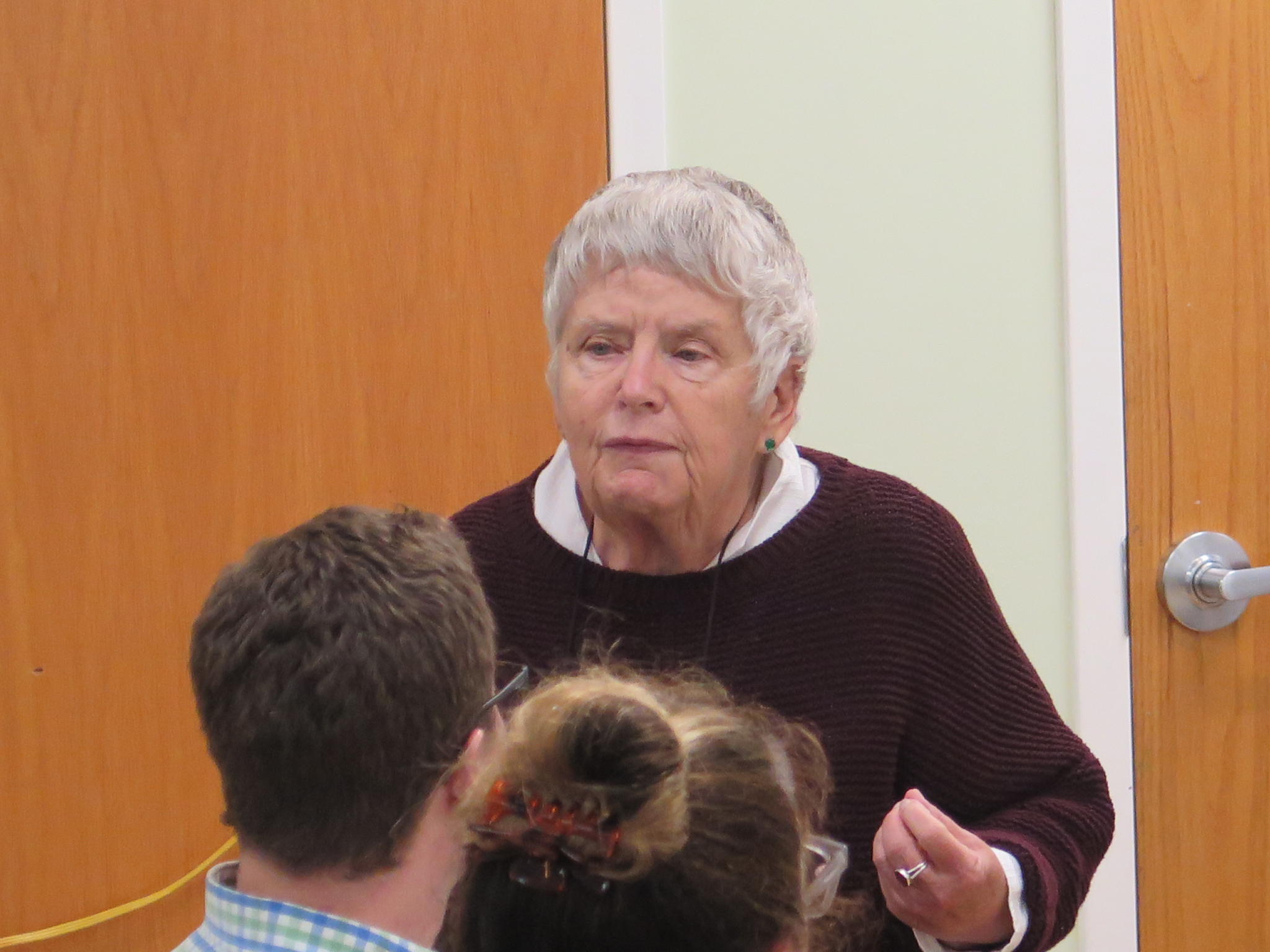
Kay Walsh from the South Boston Action Center, who has been instrumental in introducing the Life Is Good Kids concept to South Boston.
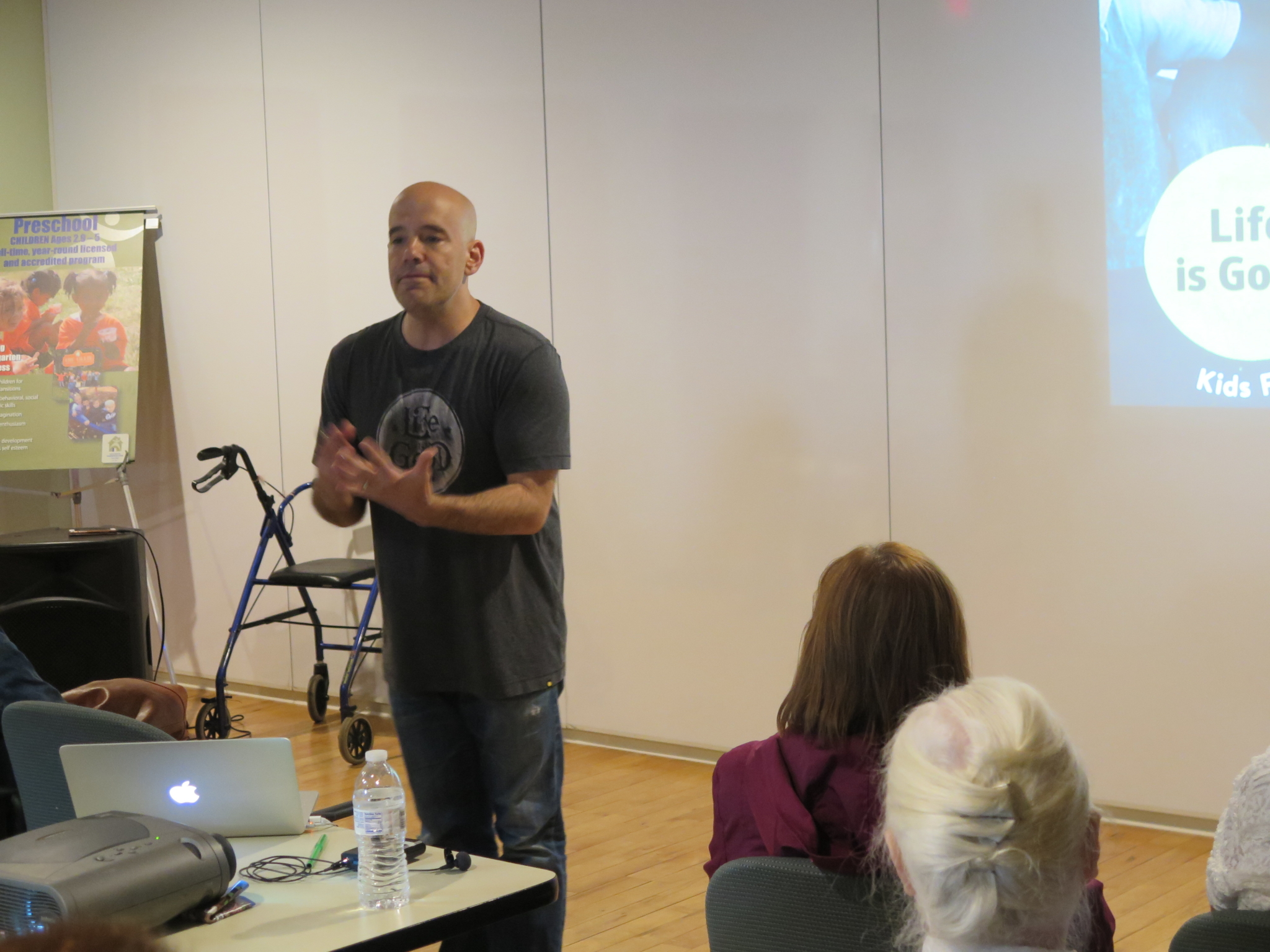
Steve Gross, M.S.W., the Founder of the Life Is Good Kids Foundation, emphasizes a point about the power of optimism in his talk about childhood trauma.
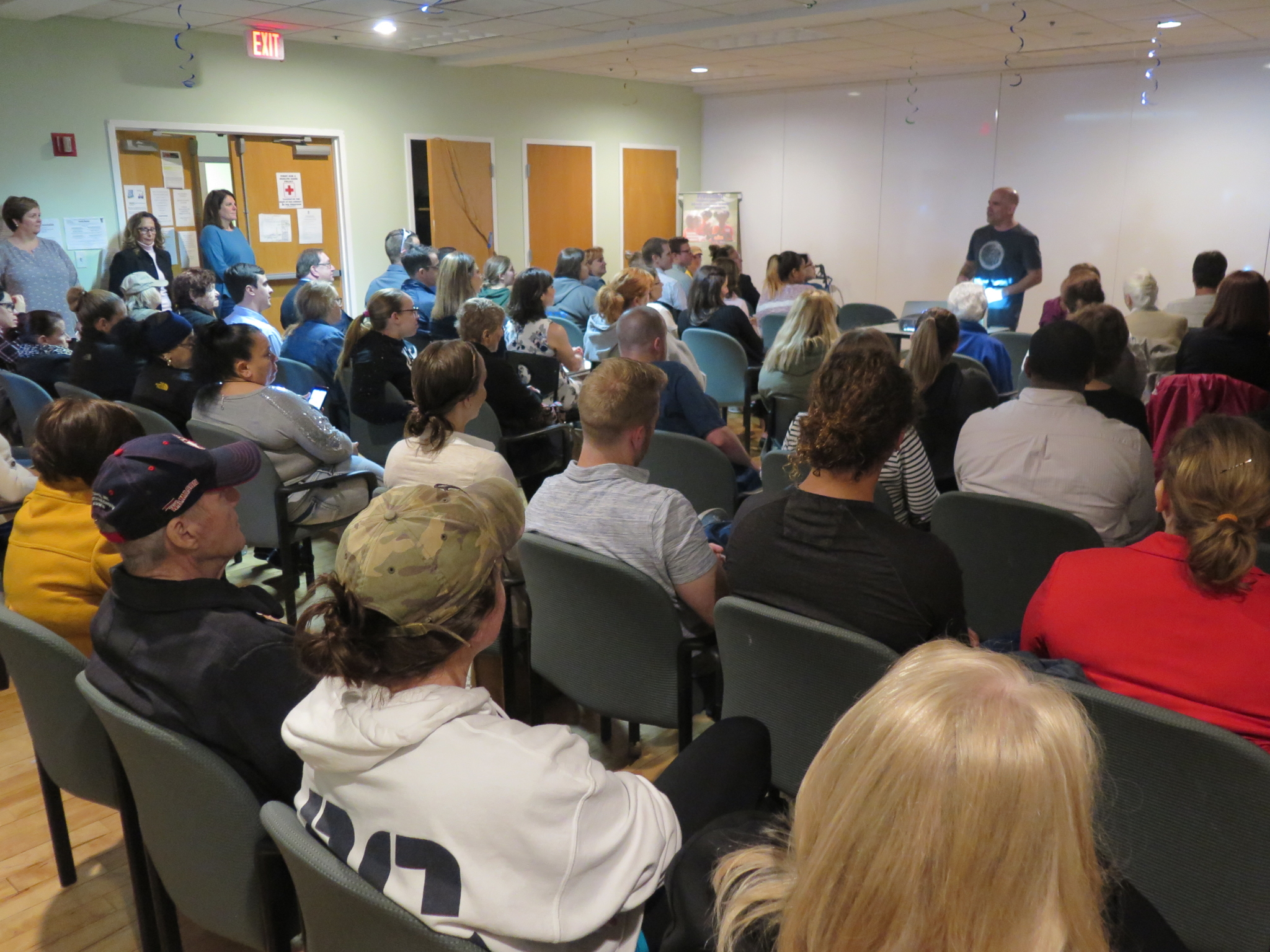
It’s a full house in the Common Room at the South Boston Neighborhood House – gathered to hear Steve Gross of the Life Is Good Kids Foundation.

